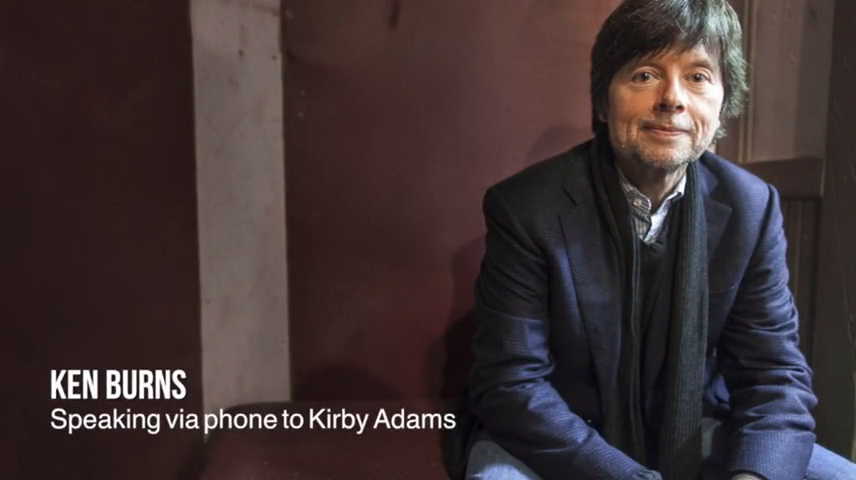'Muhammad Ali' documentary Round Four: From the Rumble in the Jungle to Parkinson's

The documentary "Muhammad Ali" premiered Sunday on PBS and continues with three more segments, airing through Wednesday.
The four-part series is directed by Ken Burns, Sarah Burns and David McMahon and chronicles Ali’s life from his childhood growing up in Louisville, Kentucky, to the global icon he became as a result of his boxing, beliefs and courage as he dealt with a debilitating disease.
The final episode, titled "The Spell Remains," aired Wednesday night and focused on Ali shocking the world by defeating George Foreman in the Rumble in the Jungle, winning back the heavyweight title and becoming the Greatest.
INSIDE LOOK: Ken Burns' four-part documentary gives an expansive look at boxing legend's life
REVIEW: 'Muhammad Ali' documentary doesn't shy away from boxer's flaws
ROUND ONE: The Greatest, premiere of documentary on legendary boxer
ROUND TWO: Fighting Liston, the Nation of Islam, and Vietnam
ROUND THREE: Joe Frazier rivalry, overturned conviction and infidelities
Here are some of the highlights from the finale.
ROUND FOUR: THE SPELL REMAINS (1974-2016)
Ali boyame
At 32 years old, many thought Ali was over the hill, especially matching up against heavyweight champion George Foreman, who had knocked out 37 of his first 40 opponents. The $10 million dollar purse was key to the fight being finalized, along with setting of Kinshasa, Zaire and the backdrop of Mobutu Sese Seko, the country’s dictator, who ruled with absolute power.
Foreman did not receive a hero’s welcome in Africa and threatened to leave Zaire after he suffered a cut above his eye in a sparring session, postponing the fight for six weeks. The Zaire citizens turned against the champion and instead threw their overwhelming support to Ali chanting “Ali bomaye” or "Ali, kill him," during his training runs and sessions.
The closest I ever felt to death
The brutality of the Thrila in Manila, the finale of Ali’s epic trilogy with Joe Frazier, cannot be understated. Round after round and punch after brutalizing punch, the two men were clearly a shell of themselves; Ali could barely defend himself and Frazier was constant target practice for Ali’s jab and his mouthpiece went flying out of the ring in the 13th round.
Frazier’s corner finally threw in the towel before the 15th round. After his TKO victory, Ali collapsed in the ring. “It was like death. Closest thing to dying that I know of,” Ali later said. The champion would be urinating blood for weeks and it is already apparent that his motor skills were already deteriorated.
Calls to quit
As soon as the fight in Manila was over, some in Ali’s inner circle, had begged him to quit. Instead after the third Frazier fight, he stepped into the ring five more times within a 15-month span because of the need for money. Ali had retired after regaining the heavyweight title for the third time after a victory over Leon Spinks in their rematch and gave up his title in June 1979, only to return to the ring a year later to fight Larry Holmes. In the fight against Holmes, Ali landed only 42 punches in the 10-round defeat.
Surprise in Atlanta
The International Olympic Committee asked Ali if he wanted to light the torch at the 1996 Olympic Games in Atlanta. He declined at first worried about the world seeing his notable symptoms of Parkinson’s, primarily the violent shaking. But he was convinced by his good friend, photographer Howard Bingham to show up and make an appearance. Olympic champion swimmer Janet Evans was thought to be the one to light the torch and as she ran up the ramp towards the torch, Ali appeared, his presence being kept a secret from almost everyone.
The champ silenced
In September 1984, Ali was officially diagnosed with Parkinson’s disease, a nervous system disorder that affects movement and speech. Over the next 30 years, Ali became even more devoted to his faith, traveling extensively on humanitarian trips to Saudi Arabia, Afghanistan and Cuba, even performing magic tricks for Cuban president Fidel Castro.
As the years went on and the disease progressed, he became the most admired man on Earth, befitting of one who is called “The Greatest.” In 2015, he was presented with the Presidential Medal of Freedom, which is the nation's highest civilian honor, by President George W. Bush.
Ali died on June 3, 2016 of septic shock at a Scottsdale, Arizona hospital at the age of 74.